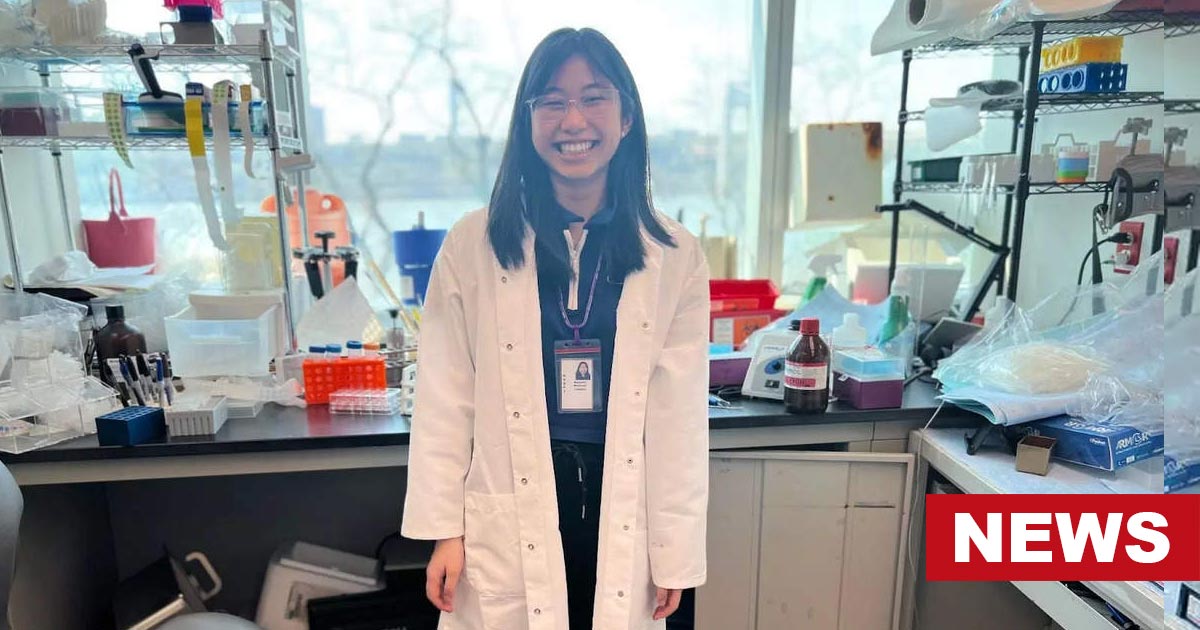- Natasha Kulviwat, an American teenager wins $50000 for her science fair project on suicide prevention.
- Her findings tackle the neurobiological perspective on suicide, recognizing its relative scarcity in existing studies.
An extraordinary 16-year-old high school student in the US, Natasha Kulviwat wins the Gordon E. Moore Award for her science fair project on suicide prevention. She embarked on a remarkable scientific journey at Columbia University, dedicating six months of her time to investigating the biomarkers of suicide in the human brain.
Her groundbreaking research aimed to identify potential biomarkers within the brain, physical and measurable substances that could shed light on the causes of suicide and potentially lead to prevention strategies.
Natasha’s study involved analyzing the brains of ten individuals who died by suicide, comparing them to a control group of ten individuals who passed away due to other causes. The donated brain tissue provided by the next of kin revealed that the brains of those who died by suicide exhibited higher levels of inflammatory cytokines.
Cytokines are substances released by the immune system to combat pathogens, causing inflammation as a normal response. However, under chronic stress or other conditions, excessive inflammation can occur, leading to various adverse health effects, such as heart disease, cancer, and autoimmune disorders.
Natasha’s research indicated that inflammation affected a specific protein in the brain called claudin-5. Normally found in the cells that form the blood-brain barrier (BBB), claudin-5 plays a vital role in regulating the passage of substances from the blood into brain cells.
Interestingly, Natasha discovered elevated levels of claudin-5 in other parts of the brain, such as neurons and microvessels, suggesting a breakdown of the BBB in individuals who died by suicide.
Consequently, foreign agents in the bloodstream could enter functional brain areas, potentially causing neurotoxicity. These findings propose that elevated claudin-5 levels in the brain could serve as a biomarker for identifying suicide risk.
In the realm of suicide research, numerous studies are striving to identify biomarkers of suicide in the human brain. Previous research, conducted in 2021, explored potential biomarkers related to the body’s stress response and serotonin interactions, but none specifically investigated claudin-5.
By recognizing suicide as not solely a psychological issue but also involving physiological processes, researchers like Natasha aim to enhance risk prediction accuracy and develop more targeted pharmaceutical interventions.
Another intriguing aspect of Natasha’s research was that certain psychiatric medications commonly prescribed to individuals with depression or anxiety, like Lexapro and benzodiazepines, did not strongly interact with claudin-5.
Conversely, some anti-inflammatory drugs did show interactions. However, Natasha cautioned against premature conclusions and emphasized the need for further research to identify alternative treatments.
Dr. David Feifel, a respected neurobiologist and professor emeritus of psychiatry at the University of California San Diego, acknowledged the significance of Natasha’s results but cautioned against inferring causation from correlations.
Dr. Feifel suggested that the brain abnormalities discovered by Natasha might be secondary to underlying fundamental abnormalities, with claudin-5 potentially having no direct link to suicide. To validate her findings, Natasha’s research needs replication in larger sample sizes.
Natasha’s exceptional work earned her, besides the prestigious award, a $50,000 college scholarship, at the renowned Regeneron Science Fair, an esteemed global competition organized by the Society for Science.
She intends to continue her research endeavors, as her passion for studying suicide prevention stems from her involvement with the American Foundation for Suicide Prevention and participation in Out of the Darkness Walks, events dedicated to raising awareness and supporting those affected by suicide.









